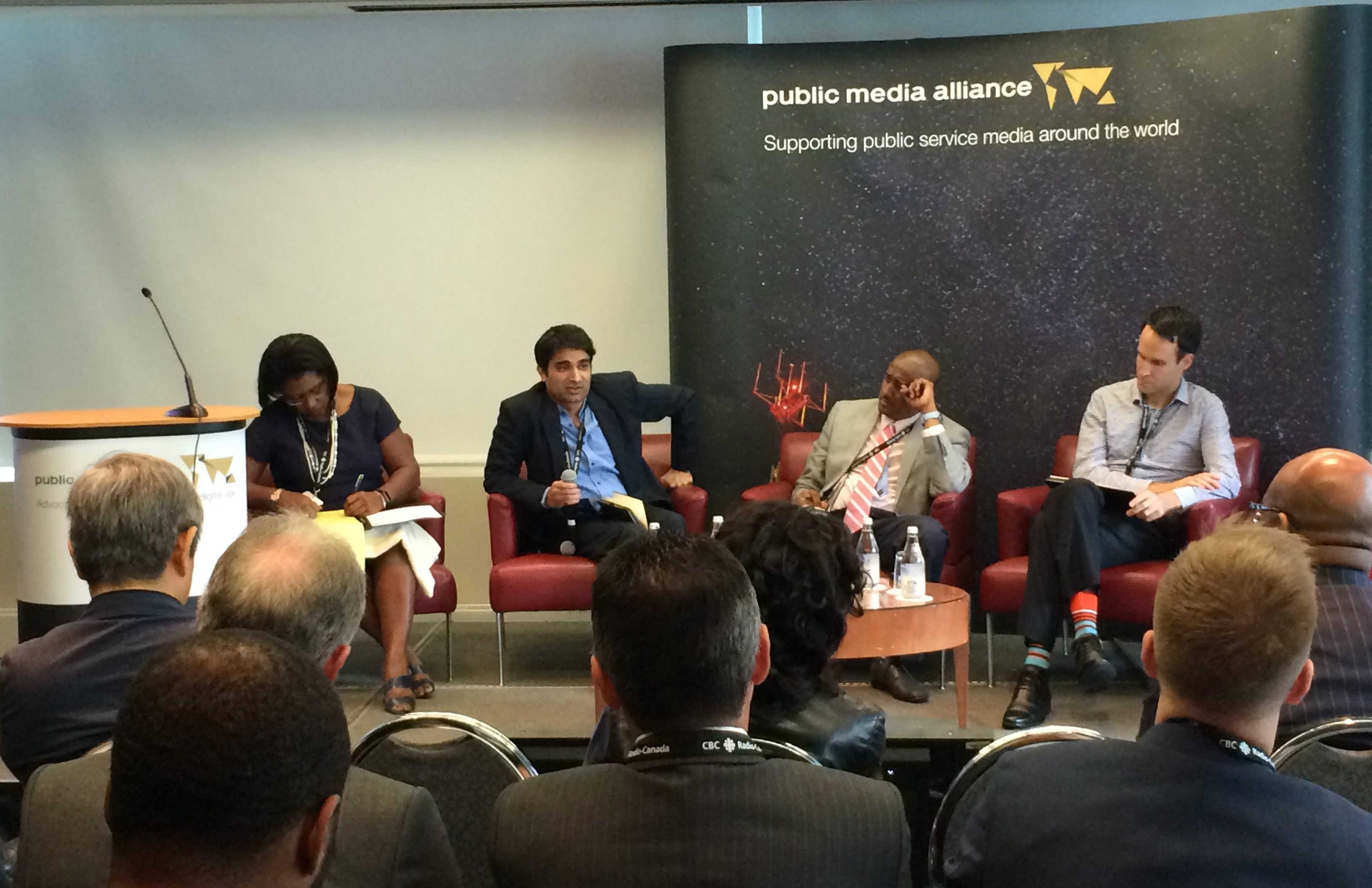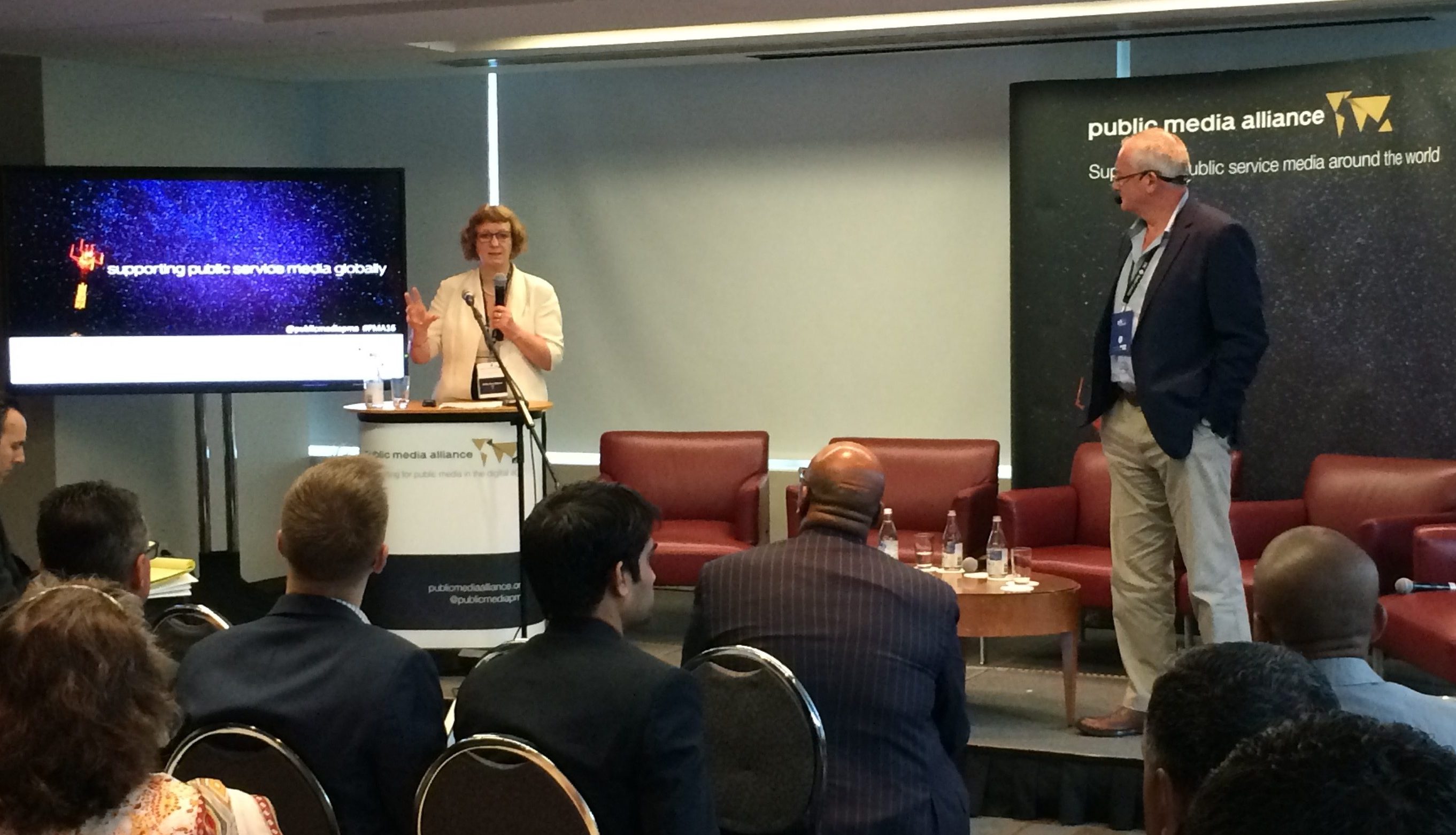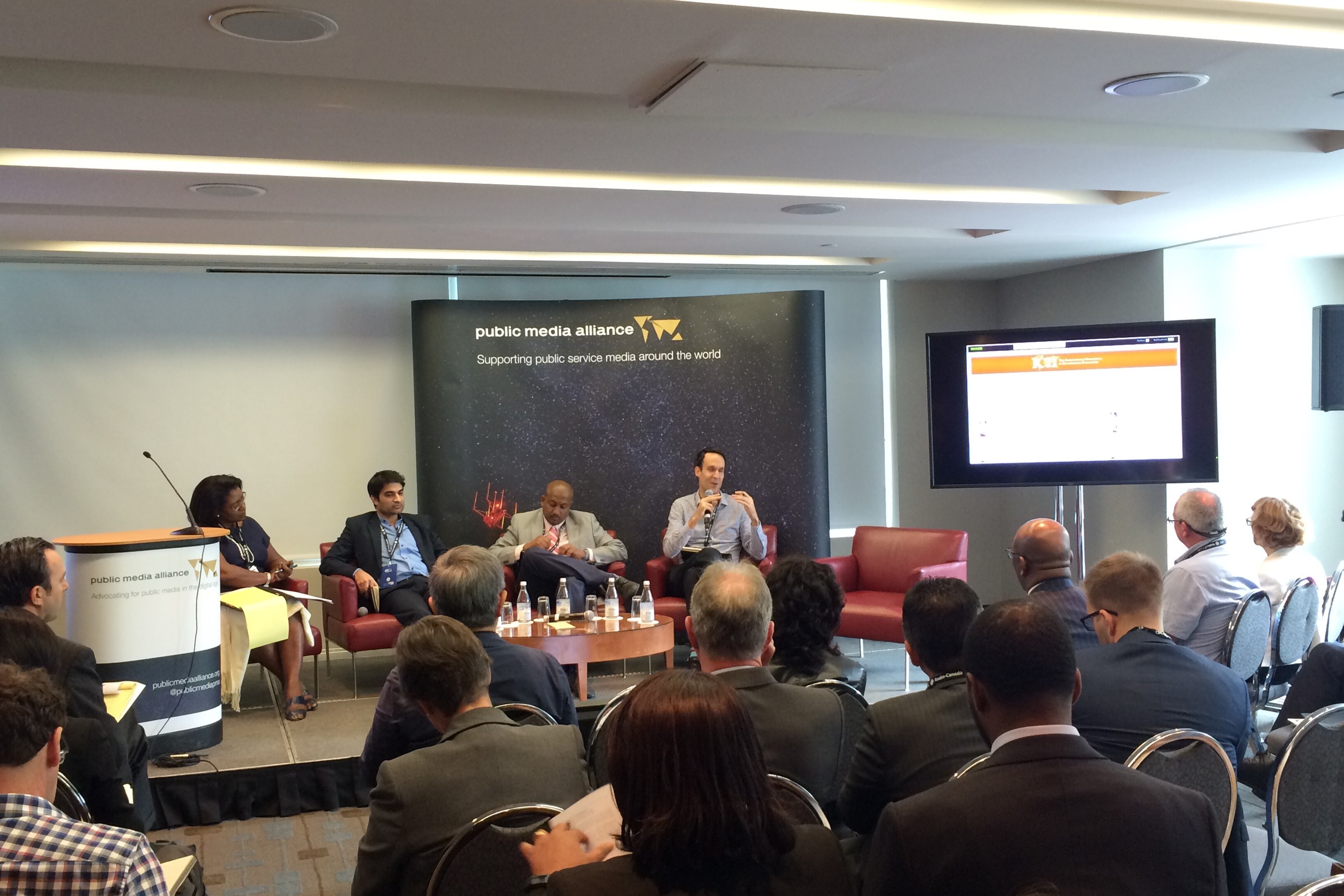By Sally-Ann Wilson, CEO
What happens in the shared public media space matters and in an increasingly fragile world, it matters more than ever before. That was the key message from our recent PMA Global Conference in Montréal.
Public media is often portrayed as being outdated and irrelevant but more than 150 media organisations worldwide continue to define themselves as ‘public broadcasters’. As ‘public broadcasting’ continues to evolve into ‘public media’, seventy delegates from around the world joined us to consider and debate the ‘essence’ of public media. Public broadcasting was simple. In a time of spectrum scarcity, radio and television were platforms that enabled citizens to be educated and informed as well as entertained. Now in a time of media plenty it’s essential for those who claim a public remit to acknowledge and publicise what it is that makes PSM special and worthy of public support.

Our meeting took the shape of a day-long conversation between CEO’s of public media organisations, from Tonga to Kenya and Brazil to Finland. Trust and journalistic quality were quickly and resoundingly identified as two of the most fundamental elements that specifically characterise public media. In short, fast paced sessions the discussions ranged from how to engage the digital public to an exploration of truth and trust with some of the world’s finest investigative journalists.
We considered how public media can embrace diversity and build social cohesion and the importance of representing citizens, not governments, in our output. Speakers and delegates reflected on how to effectively cover the big issues such as climate change and considered the challenges of political, parliamentary and election coverage. Our final intervention from CBC’s own Marion Warnica, was a stark reminder of how 3D reporting, via new media alongside broadcast media, provides not only credible but life-saving coverage during a crisis.
Developments in media technology continue to provide real opportunities for public media and it seems that many of these are being grasped as eagerly in the Global South as in the West. Public media has always provided plurality to commercial offerings but its distinctive content today provides plurality in a world increasingly dominated by digital social media giants.
Another clear message from the conference was that with increasing infringements on media freedom and a growth in authoritarianism worldwide, public media is not purely a development issue. Initial analysis from the PMA’s own research project on the role of public media in democracy were headlined at the conference. These findings clearly demonstrate that the same key characteristics are important regardless of context. Independence and impartiality are as relevant to democracy in the United Kingdom as they are in Tonga.

Following the PMA conference many delegates attended the annual Public Broadcasters International conference 2016 hosted by CBC/Radio-Canada. Here PMA speakers provided further examples of innovation from the wider world of public media, including the role that young citizen journalists play in rebuilding society in post-conflict Sri Lanka and the benefits of placing citizen journalism at the heart of the organisation with PeoPo, the innovative Taiwanese platform.
If public media is central to democracy then clearly those that advocate it need to raise public awareness about why it is worth supporting. Such advocacy is now a key remit for PMA. We will continue to aggregate and curate public media stories and research on a daily basis on this website and in the coming months we will be building on our current research project by launching a Global Barometer of PSM. This will provide a much needed index for public media organisations, their critics and supporters enabling everyone to measure and publicise the criteria, values and outputs of public media globally.
Header image: Panelists discuss changing climate for PSM globally at our 2016 conference in Montréal. Credits: Kristian Porter/PMA
